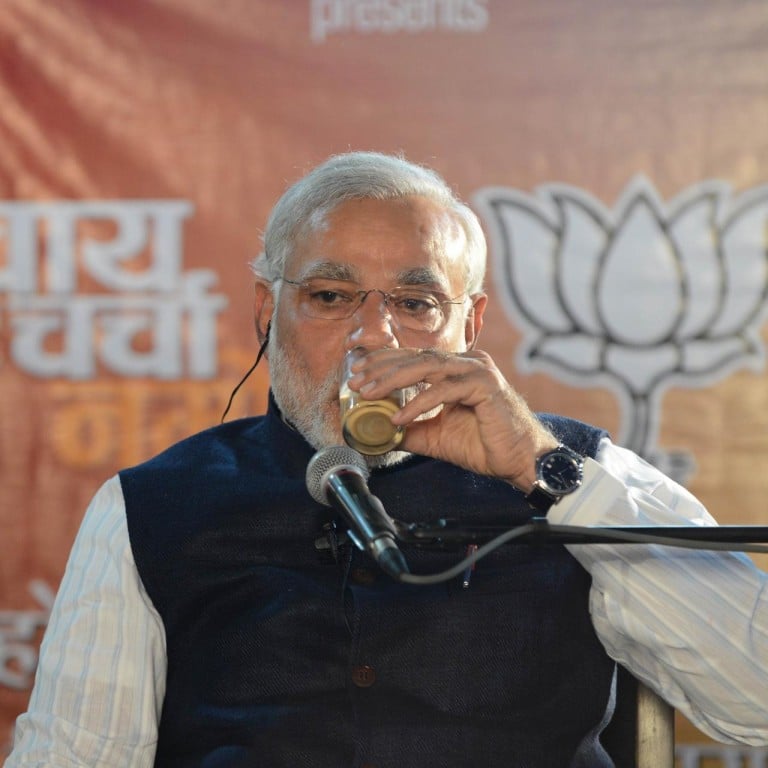
Slur gives 'tea boy' Narendra Modi boost in run for PM
Narendra Modi's candidacy for prime minister of India was only strengthened when a ruling party MP dismissed him as a 'chai wallah'
India's tea makers are an industrious bunch whose roadside stalls are places of clanking kitchenware, gossip, and scalding hot brews.
Many vendors like Jaiveer Jasiwal, whose grimy family-run stand can be found in the old part of Delhi, dream of bigger things. But few ever thought one of their own might one day rise to be prime minister.
That prospect, in a country still riven by caste and ruled for most of its post-independence history by one dynasty, looks more likely with the rise of opposition leader Narendra Modi.
And thanks to an ill-advised political barb from a ruling party MP who mocked Modi's time as a (tea boy), tea stands have been thrust centre stage in a bitter campaign for the national elections due by May.
On Wednesday night, Modi slurped a glass of tea in his home state and took questions about governance. The event was broadcast to tea stands and their working-class clients across the country in 300 cities, including Jasiwal's.
"He [Modi] represents people like us who have small means, but big dreams," said Jasiwal, 28, who also runs what he describes as a one-man business-consultancy firm on the side.
He represents people like us who have small means, but big dreams
"And if he can do it and I can sort of do it, then anyone can do anything. PM, doctor, teacher, actor, anything," he said.
Modi, a hardline Hindu nationalist whose links to religious riots in 2002 make him a divisive figure, is pitching a message of jobs, development, aspiration and social mobility.
One of his perceived assets is his background as a lower caste former tea boy from western Gujarat who rose through the ranks of grassroots Hindu organisations to become top candidate for the Bharatiya Janata Party.
In his public addresses, often delivered in coarse Hindi and dripping with sarcasm, Modi routinely derides his main opponent, Rahul Gandhi, as a or prince.
Gandhi, a Harvard-educated son, grandson and great-grandson of Indian prime ministers, still appears to struggle with his famous name and new role leading the ruling Congress party into elections.
Faced with a backlash against the English-speaking political establishment, the recent mockery of Modi's background appears to have spectacularly backfired.
Speaking at a meeting of the Congress party in January, upper house MP Mani Shankar Aiyar told reporters of Modi: "There is no way he can be prime minister in the 21st century. But if he wants to come and serve tea here we can make some room for him."
Gandhi reportedly later condemned the remark in private - although he praised Aiyar publicly at the meeting - and commentators quickly seized on a slur seen as both casteist and patronising.
It was also at odds with the mood of the country at a time of immense economic change that has seen aspirations rise and the shackles of the ancient caste system loosen further.
"That remark can be very damaging," said Professor Christophe Jaffrelot from Sciences Po University in Paris, an India analyst.
"I do think now that times have changed and you can't claim that the lineage is an asset. It's a liability," he said.
"See their mentality," Modi said recently at a campaign stop in northern Uttar Pradesh, referring to Congress, which has been in power nationally since 2004.
"They do not like if a chai wallah, a son of a poor mother, walks with his head held high," he added. "The Congress has insulted the poor, mocked my origins as a tea seller."
